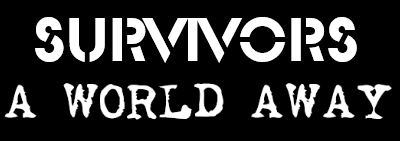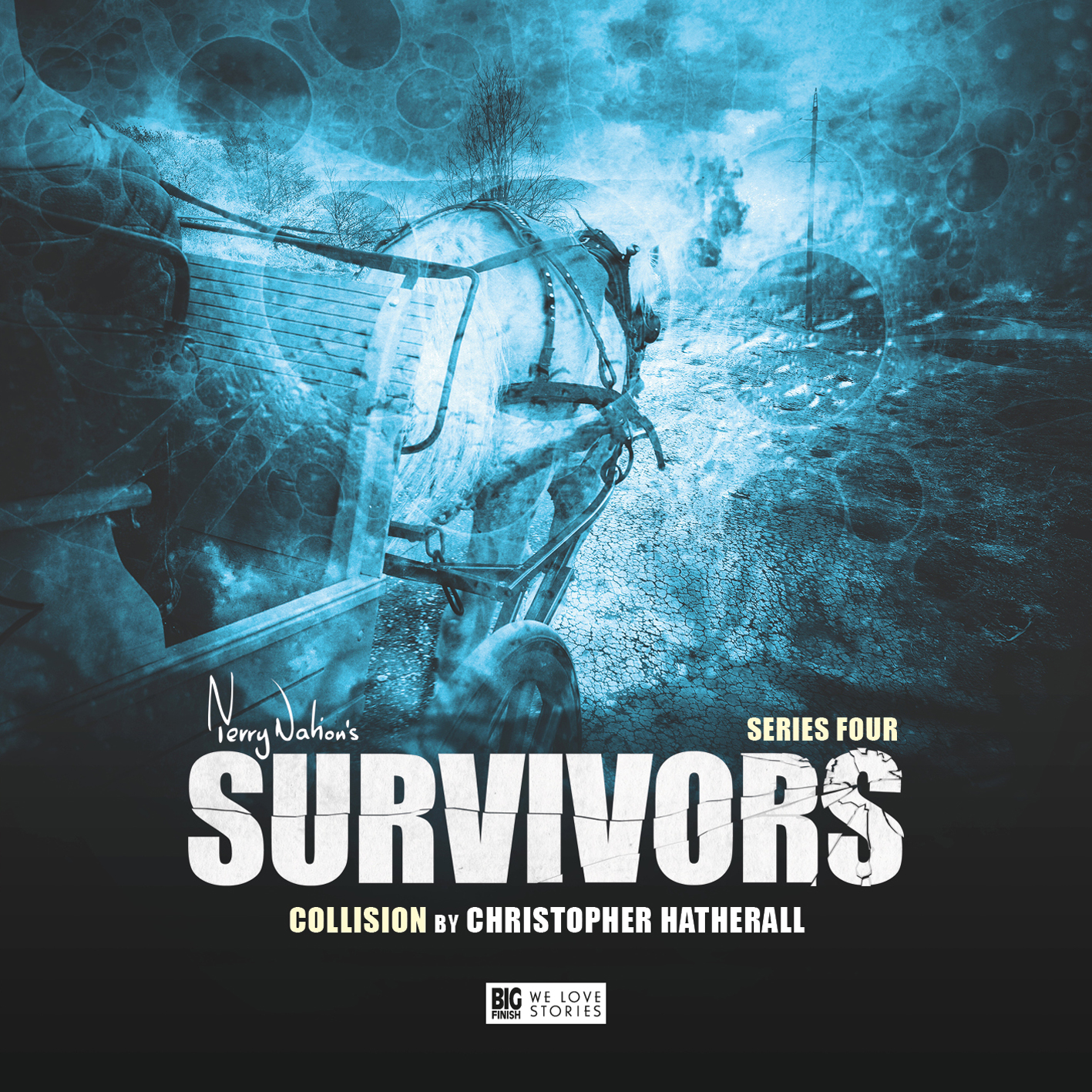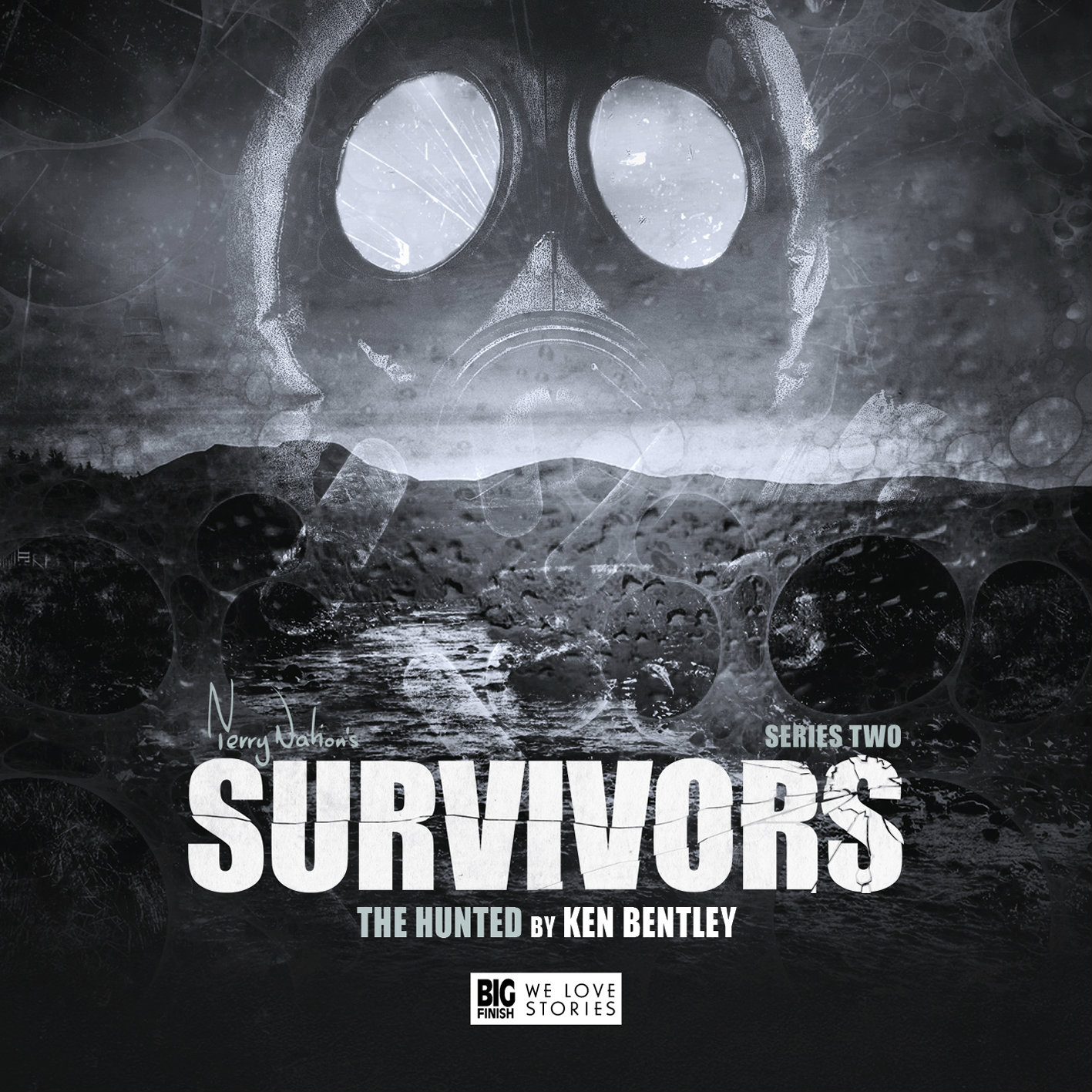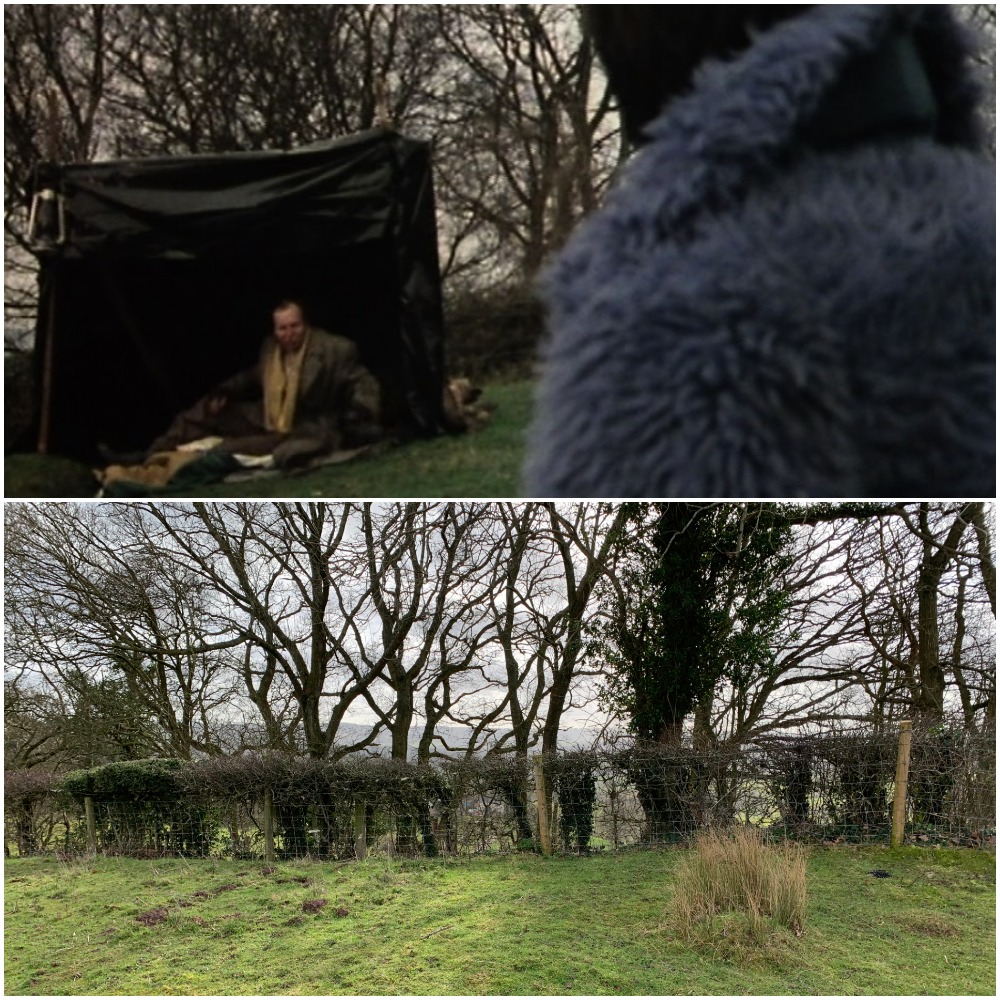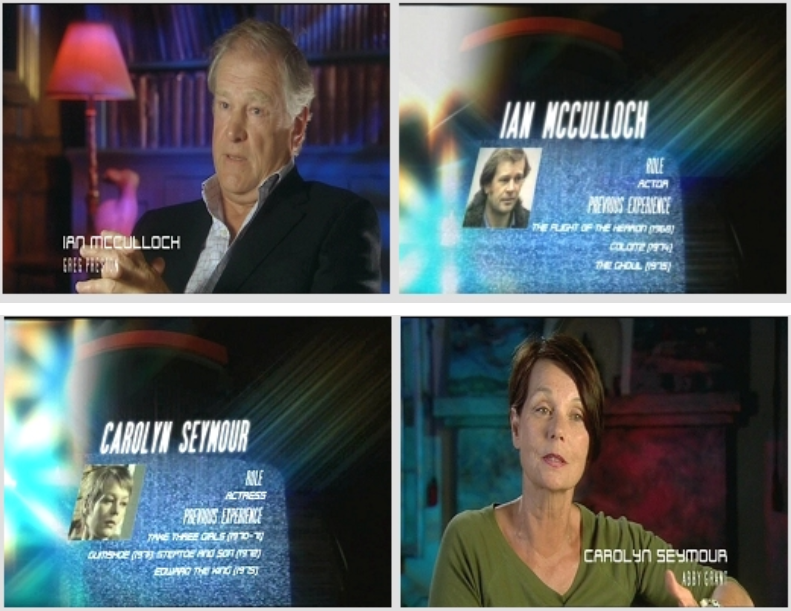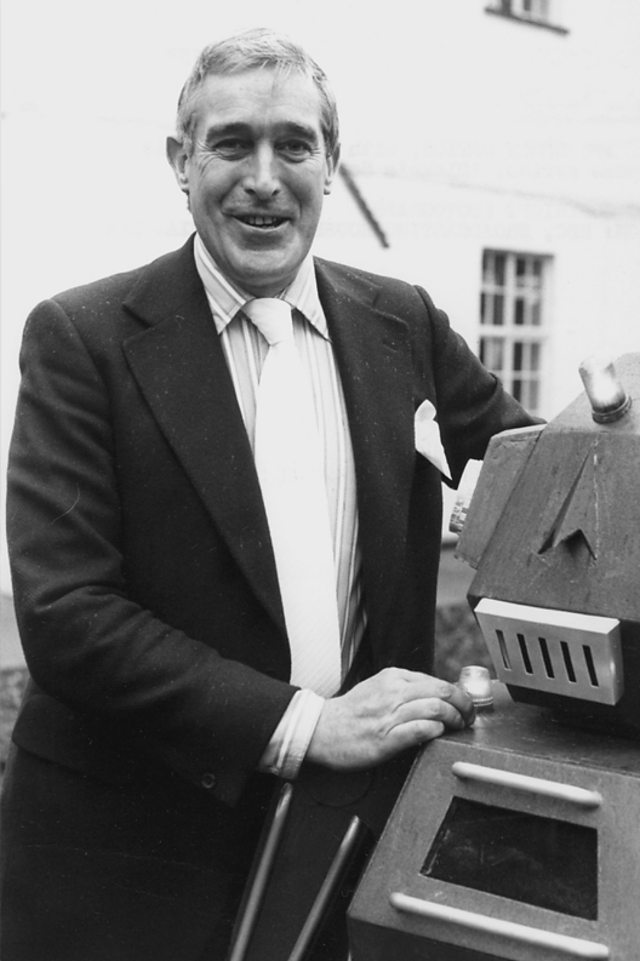
BACK IN 2004, ahead of the publication by Manchester University Press of a new study of the work of Survivors' creator Terry Nation, author Jonathan Bignell discussed the approach that he and his co-author Andrew O'Day adopted when studying their subject.
What is it about Nation's canon of work which merits the attention that you've given it?
Andrew O'Day and I think Nation's work is interesting in itself, because of the way Nation drew on and manipulated some of the conventions that have been around a long time in science fiction, such as the apocalyptic premise of Survivors and his first Dalek story for Doctor Who, or the space-going adventure in Blake's 7. We also wanted to use Nation's career as a 'case study' to explore how writers negotiate their role in television, pitching ideas, negotiating with production staff, and building up a reputation. We think we have identified some aspects of Nation's work that show how he had a consistent 'signature' that connects different programmes with each other, but we also wanted to draw attention to the range in Nation's career, such as his early work writing radio and television comedy.
Is it in any way surprising that Nation should have made the scriptwriting transition from comedy to the realms of science fiction and drama?
Yes and no. Nation had wanted originally to be a performer, but his comedy stage work was poorly received so he decided to write the material rather than perform it. Once he began writing, it was really a sudden spell of unemployment that took him to science fiction since he fell out with Tony Hancock who he had been writing for on tour. After he reluctantly took on the Doctor Who story that became 'The Daleks', he found that having made an impression in science fiction he got a lot more offers to write in that genre. It's worth remembering that that are flashes of humour in a lot of his science fiction work, though perhaps that's not so clear in Survivors as in some of his other scripts.
We also wanted to use Nation's career as a case study to explore how writers negotiate their role in television
Jonathan Bignell
Can you say something about those 'signature' elements of Nation's screenwriting style which are evident across the series that he worked on?
We have a long chapter about that, so I'll just give a few instances here. Nation had a generally liberal political attitude, favouring democracy and despising totalitarianism. Many of his works reveal that, and certainly Survivors does in its focus on the building of a community and the ways the characters have to invent a system of government for themselves. Characters such as Wormley and Jimmy Garland represent possible alternative kinds of social organisation, and we discuss how the series negotiates a political position among there alternatives. Nation's work often repeats themes and structures that he has used before, and although that could be explained as Nation finding easy ways to turn out scripts quickly, it also means there are common threads between the series. He also borrows ideas from other genres, such as the shoot-out in 'Something Of Value' where the main characters are holed up trying to protect their fuel tanker. That looks a lot like a Western.
Nation developed his technique of telling parallel stories especially well in Survivors
Jonathan Bignell
You research and write extensively in the area of television science-fiction - but do you consider yourself a fan as well as an analyst of the genre?
The word 'fan' means different things to different people. I watched Survivors enthusiastically when it was first screened, and I have also enjoyed plenty of other science fiction TV series, such Nation's Blake's 7. I have never been to a science fiction convention, but on the other hand I do have a collection of video and DVD and some of the non-academic books that have been published about science fiction programmes. In the academic arena, fans and fandom have been discussed extensively because there is a lot of interest in how television viewers make programmes their own and integrate them into their lives. Since I lecture about television, I am immersed in TV in a different way from many fans, but it is sometimes difficult to separate my interest in analysing programmes from my enjoyment of them. I think fans are often very perceptive analysts, and academics working in television studies have often specialised in the field because of their personal interests.
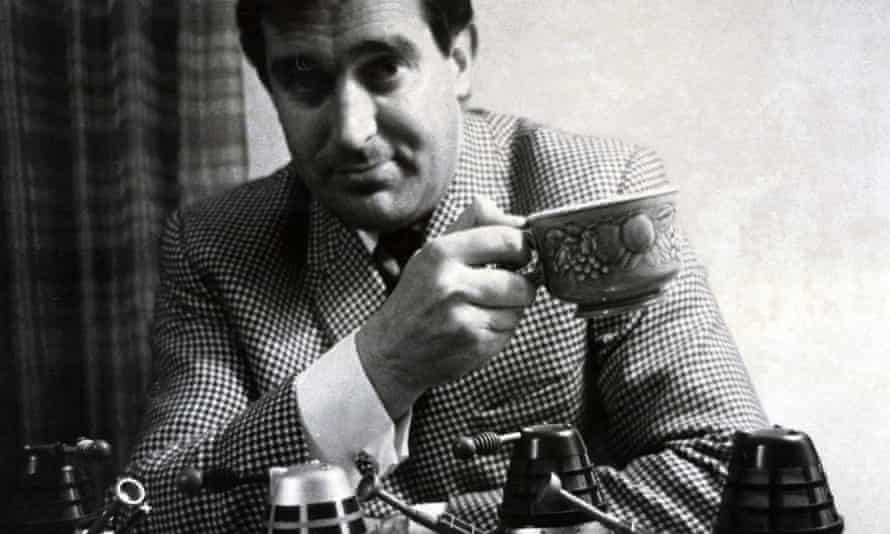
How long have plans for the book been germinating?
The idea for the book first came up in summer 2002. The book on Nation belongs to a series ('The Television Series') that Dr Sarah Cardwell and myself suggested to Manchester University Press at that time. Thinking about the television writers who could be subjects for books in the series, I suggested Terry Nation among a few others. I knew I would need expertise in addition to my own, so I invited Andrew O'Day to be the co-author, and we mapped out what the book would include in detail. Our proposal was reviewed by Sarah Cardwell and advisers appointed by Manchester University Press, and we got the go-ahead.
Have you and your co-author collaborated on all sections of the book - or has one of you been primarily responsible for each of the three series covered?
We didn't divide the book up by series, but more by topic and where each of us's expertise would be most useful. Andrew is very good at closely analysing programmes, so a lot of the detailed analysis that appears in the later parts of the book was mainly his. I did research at the BBC Written Archive Centre on the documents relating to the production of the programmes, and this appears mainly in the first half of the book. We worked together on the actual drafting of the material, and made changes and corrections to each other's writing. It's hard to remember now exactly who did what, and I hope the book reads with a consistent style throughout.
The initial collapse of civilisation is brilliantly realised as well I think, and still very relevant now
Jonathan Bignell
How have you structured your writing on the different series - thematically, chronologically-by-episode, or a mixture of the two?
We give a lot more attention to the early episodes of Survivors, since that is where the parameters of the series are set up. We don't have space to analyse each episode in exhaustive detail, but we bring out the continuities that give the programme its distinctiveness. And of course we discuss the episodes written by Nation in more detail than episodes that he didn't write. We also make links between Doctor Who, Survivors and Blake's 7, as my earlier answer said. In general, we write about Nation's work chronologically in each chapter, and each chapter has a different thematic focus.
Is this work primarily aimed at students of cultural and media studies, or is it something which the general reader will connect with and understand?
This was the biggest challenge we had in writing the book. We wanted the book to be useful to students who want know about important programmes in the history of British TV drama, such as Doctor Who, Survivors and Blake's 7. This meant we needed to discuss and explain academic issues such as definitions of genre, how authors work with script-editors and producers, the role that evolving TV technology played in making the programmes, and how audience response to the programmes affected their development. But we also wanted the book to appeal to readers who already know about the programmes, and want to see interesting analysis of how they look, how they are structured, and behind-the-scenes information about how they were made. I hope we have mixed these issues together seamlessly, and we went to a lot of trouble to define academic terminology for general readers and show why it is useful, and also to explain how Nation's work reveals a lot about British TV from the 1960s onwards.
Apart from its post-apocalyptic theme, what are the key things which distinguish Nation's work on Survivors from his writings on Blake's 7 and Doctor Who?
Nation developed his technique of telling parallel stories especially well in Survivors I think. For Doctor Who the format had already been worked out, with the main characters in place, and in Blake's 7 the members of the Liberator crew are almost all together as prisoners form the start. In Survivors Nation's opening episodes work as a serial, where the separated characters are introduced one at a time in different locations and gradually come together. Making and breaking the community is a common thread through Survivors that is much more significant than in his other programmes. Nation's writing for women is quite patchy and in some ways unsatisfying, but in Survivors he does a very good job with Jenny and Abby I think, who are different but believable and individual, so that is also a distinguishing feature.
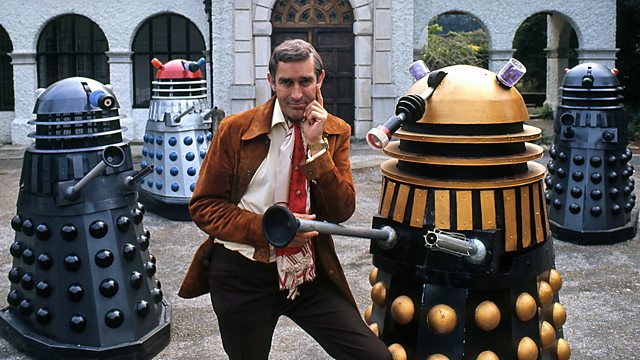
Would you consider Survivors to be Nation's most 'adult' or 'grown-up' TV drama?
I think so. Its ideas about what society might be when reduced to a minimum level, and how the necessities of survival, security and morality can be created, are very thought-provoking. The initial collapse of civilisation is brilliantly realised as well I think, and still very relevant now when the government is telling us to collect tinned food and bottled water just in case.
Have you chosen to treat Nation's Survivors' scripts as 'texts' in their own right; or have you studied how those texts were interpreted by those involved with shaping the series as it appeared on-screen?
We have quite a lot to say about the realisation of the script though choices of camera position, shot size, etc, which are the responsibility of the director. We try to give an even-handed assessment of the storylines, format and structure of the programme as Nation devised it, but also give due credit to the audio-visual effect that was produced once the scripts had left Nation's hands.
What have been some of your key conclusions about the quality and substance of Nation's work - on all three series?
Nation's writing of parallel storylines got better across his career I think, and Survivors is a high-point for me in that respect. There are consistent ideas about setting up boundaries between us and them, human and alien, insiders and outsiders, that crop up across his work and we discuss these and other themes in some detail. In the conditions of writing series television, where he had to adhere to a format that remained consistent and write to a budget that was often restrictive, we think there are definite signs of 'quality', and ideas that we think give the work important substance.
Nation was both hugely proud of and very disappointed by Survivors - why do you think he chose to leave such a hit TV show?
That is an easy question. He was disappointed that the series was being moved in directions he didn't want it to go. Using information from audience research, the producer wanted to change or remove some of Nation's characters (like Jimmy Garland), and centre the programme on domestic drama rather than the questing and problem-solving that Nation had focused on when he devised Survivors.
Does your focus on Survivors end with Nation's departure from the show at the end of the first season - or do you go on to compare his original vision of the show with its subsequent evolution?
We do discuss how Survivors changed, but we do that to show how the process of negotiation between writer and production team affected his involvement in the programme. We don't analyse the later evolution of the show to a great extent.
Survivors is a very rich and rewarding programme to view and study
Jonathan Bignell
What kinds of archival material on Survivors have you been able to access? Have you been able to interview many of those involved on the series - either in front of or behind the camera?
We had access to all the files of written documents at the BBC, and there is a lot of information in the book about Nation's dealings with BBC producers as he created the format, wrote the initial episodes, and dealt with the challenges to his ideas that were posed when a new producer took over. We were able to quote from these documents directly, and explain the process of production. We didn't use interview material when working on Survivors, though we did talk to people involved in some of Nation's other work, such as Verity Lambert. Obviously we also watched the episodes repeatedly, and used information from articles in journals about Survivors.
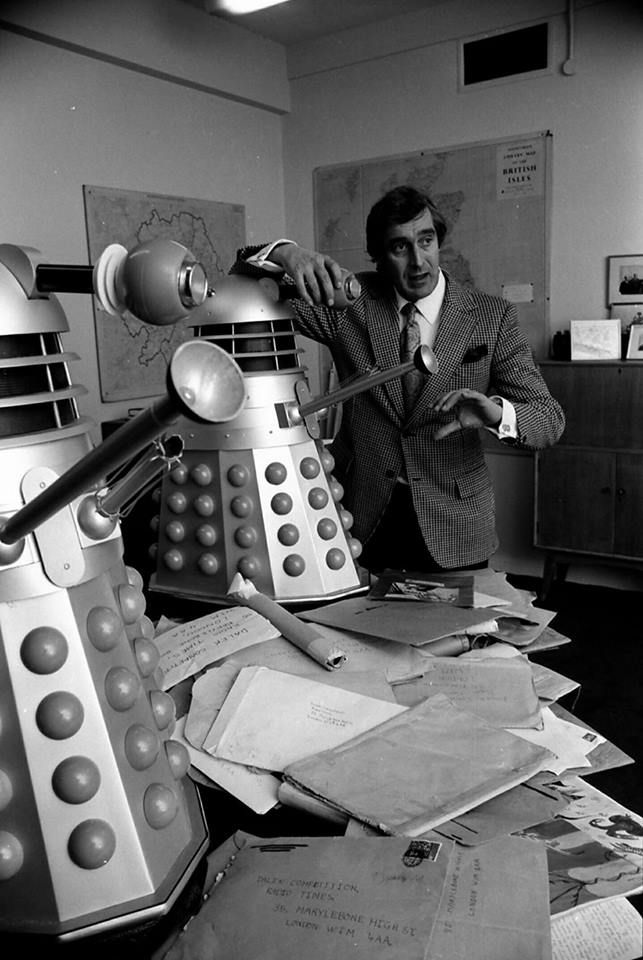
What illustrations have you been able to source for the book?
We included 15 illustrations in the book, all of which are screen shots from the episodes as transmitted. There is a shot of Talfryn Thomas from 'Genesis', a shot of the group of main characters from 'A Beginning', and a shot inside Wormley's house from 'Genesis'. For technical reasons the pictures had to be in black and white, and not as large as we would have liked them to be. But they are chosen to exemplify points we make in the text about camera technique, casting and themes, so they are there for a reason. The pictures are all reproduced with permission from the BBC, and were very expensive!
Given the subject matter, is this a book you'd expect to see reviewed in magazines like Dreamwatch, SFX and Doctor Who Magazine, as well as in academic journals?
Yes. In fact we know that several publications are planning to review the book. There are also going to be reviews on the web in various sites devoted to the programmes Nation wrote.
Is Nation's contribution to the BBC scriptwriting canon properly appreciated, do you think?
Fans know a lot about his contribution, and although some people are critical of his work, sometimes for good reason, there does seem to be a lot of interest in our book, which shows that people are interested in knowing more about him and the programmes. He wrote for popular programmes, and that means academic critics can be much less aware of the extent of his contribution than fans and TV enthusiasts. I hope our book will encourage people to go back to the series, and perhaps it will also encourage more writing, since there is a lot more to say than we had space to cover. I don't think anyone has done a PhD on Survivors yet either, but it seems like a good topic for a book-length study - one that I won't have time to write myself!
What can Survivors enthusiasts look forward to from the book?
There is some revealing research about how Survivors reached the screen, how its format and ideas were planned and executed, and how the negotiations between Nation and the BBC affected its evolution. We have sections of interpretation of key episodes, especially the early ones. It will also be interesting to Survivors enthusiasts to see how that particular programme fitted into Nation's writing career, and how it connects with his earlier and later work. Survivors is a very rich and rewarding programme to view and study.
Jonathan Bignell was interviewed by Rich Cross on 17 August 2004
Cite this web page
Cross, R. (2021). 'Jonathan Bignell discusses Terry Nation,' [online] Survivors: A World Away, 31 January. Available at: https://www.survivors-mad-dog.org.uk/a-world-away/Interview_Jonathan_Bignell.php. Accessed on: 21 February 2026.
Current style: Harvard
TAGS
